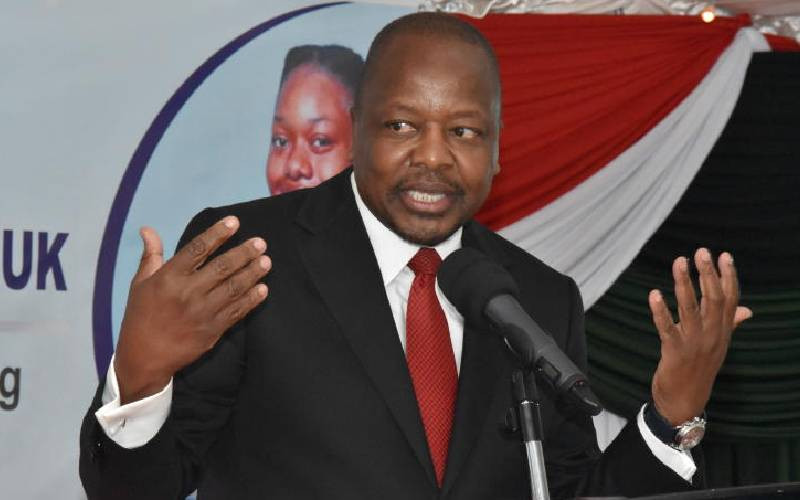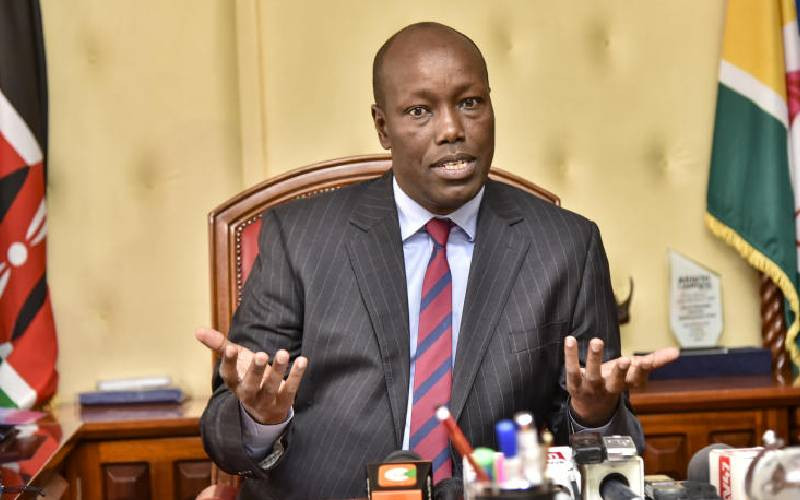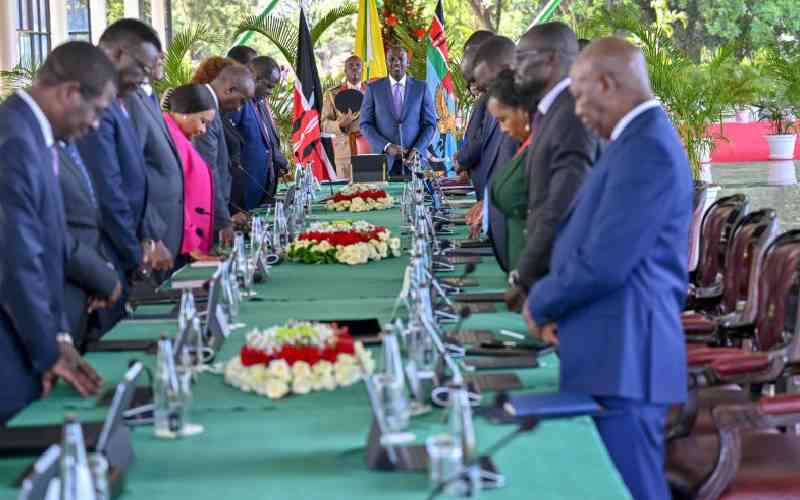Evident shortage of doctors in the country, against the rising demand for health care, makes the medical profession more attractive to unqualified people reaping-off unsuspecting patients. According to Deloitte-'2016 economic outlook report' Kenya only has 1 doctor for every 10,000 patients, a number way below the World Health Organization (WHO) recommendation of 10 for every 10,000 patients.
Besides the shortage, there is also a sharp decline in number of medical doctors willing to serve in outside Nairobi. Fifty percent of practicing doctors are said to be concentrated in Nairobi alone, a city that is coincidentally the epicenter of quack doctors in the country. Kenya universities churn out some 365 doctor graduates every year, each having spent Kshs 5.7 million, according to Dredger a Kenyan data journalism site. Lack of government commitment to hire or even give a decent stipend to the doctors has seen army of doctors depart making Kenya top six countries in Africa in exporting doctors.
A visionary leadership with sufficient data from bureau of statistics would work towards reducing the deficit by hiring more doctors. That seems to be a mirage if the government spending on the health sector allocation is anything to go by. Only 6 % of the GDP is allocated to healthcare sector compared to notably Rwanda which allocates 18% of its budget to the health sector. Kenya also performs poorly compared to Botswana and Niger which allocates 17.8% of the budget to health sector. Other well-funded health sectors are in Malawi, Zambia and Burkina Faso all allocating more than 15% of their budgets to healthcare.
Numerous studies and research have highlighted on the health-economy link, whose findings are never ignored by developed countries. From time to time, the effects of the neglect in Kenya get exposed, revealing an impending crisis. A crisis that is often wished away by the country's leadership, blind to the need to strengthen systems, checks and balances or enact policies that would cement a healthy nation.
Cases of people masquerading as fake doctors are not new to Kenyans. Money hungry individuals infiltrate the sector, risking the lives of millions. Scandalous cases exposed by the media are often rubbished and the few cases that are investigated, take snail pace journey to offer a deterrent lesson.
The king is naked and someone needs to tell him the truth. Mr. President, the indicators of a health crisis are glaring at us on the face and it’s time to act decisively to uproot the Mugo wa Wairimu's and Melly Kiprotich's in the health sector. Institutions are reactive as opposed to being proactive. Their reaction is often familiar and predictable- call a press conference and deny and deny and deny even more!
Take for instance, the Kenya Medical Practitioners and Dentists Board (KMPDB). A regulatory body mandated by the constitution to regulate the health sector, by ensuring they train, assess, register, inspect and license medical practitioners in the country. Instead of acting, the board prefers to pass the buck to the public. A now common line 'be vigilant and help us on fake doctors'.
Former Permanent Secretary, Dr. Bitange Ndemo in an article-'Our medical malpractice' published in 2014. Urged the KMPDB ''[to] built a database on the history of doctors found guilty of malpractice.[added that] There is need to know which colleges they come from, where they interned, who supervised them. After sometime, a pattern will emerge which will help get rid of bad apples''.
Two years later KMPDB is yet to establish such a system despite admitting the country has a problem with fake doctors on the increase.
The Prof. George Mugoha chaired board, is well informed of the magnitude of the problem but have continued to drag its feet on resolving it. With decentralized committee in-charge of inspection of medical and dental centers, ability to scrutinize applications, approve registration of medical and dentist practitioners, besides monitoring for compliance and conducting inspections. The board can do better.
But the citizens as well have a responsibility to make the government accountable. Are we so blind to see things beyond tribal lens or we are that country H.G Wells referred to in his stories?
Among the 1911 short stories of H.G. Wells. 'In the country of the blind, the One-Eyed man is King' sets a perfect comparison to Kenya. The narrative talks of a man called Nuñez who discovered a 'country of the blind' which had been lost and isolated from the world. Diseases had rendered loss of sight for everyone in that country. Nuñez was the only one with sight after blindness had spread over many generations. His attempts to suggest issues to the leadership using his fifth sense of sight, were all rejected by the villagers (country). At some point they ordered a village doctor to remove his eyes, claiming that they were diseased and affected his brain. Before the eye-removal day reached, he made an escape from the valley isolated country with a lady he wanted to marry.
Bad leadership in Kenya isolates the country from a far-fetched dream of good governance. Scandals and corruption, loss of human value to humanity and yes, the sense of foresightedness all make the country a perfect fit to H.G. Wells story. Abnormal has become normal and greed is the pride for a generation.
Indeed there is a problem not only in the health sector but in the country at large. Similar to the 'Country of the blind', our leaders are busy condemning and silencing people with a 'sense of sight'. A band of followers have graduated into hardened sycophants seeing no evil and denying the state of blindness the country faces. It is time to make a king with eyes to lead us from generational blindness. Increase healthcare spending to rescue country from eminent health crisis.
Stay informed. Subscribe to our newsletter
 The Standard Group Plc is a
multi-media organization with investments in media platforms spanning newspaper
print operations, television, radio broadcasting, digital and online services. The
Standard Group is recognized as a leading multi-media house in Kenya with a key
influence in matters of national and international interest.
The Standard Group Plc is a
multi-media organization with investments in media platforms spanning newspaper
print operations, television, radio broadcasting, digital and online services. The
Standard Group is recognized as a leading multi-media house in Kenya with a key
influence in matters of national and international interest.
 The Standard Group Plc is a
multi-media organization with investments in media platforms spanning newspaper
print operations, television, radio broadcasting, digital and online services. The
Standard Group is recognized as a leading multi-media house in Kenya with a key
influence in matters of national and international interest.
The Standard Group Plc is a
multi-media organization with investments in media platforms spanning newspaper
print operations, television, radio broadcasting, digital and online services. The
Standard Group is recognized as a leading multi-media house in Kenya with a key
influence in matters of national and international interest.








